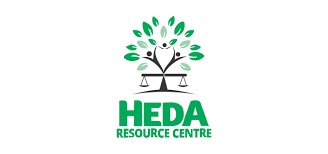The Human and Environmental Development Agenda (HEDA Resource Centre) has urged the Federal Government to ensure full transparency and accountability in its reported disbursement of N330 billion to poor Nigerians through the National Social Safety-net Coordinating Office.
HEDA’s Chairman, Olanrewaju Suraju, made the demand in a statement issued on Sunday, following the disclosure by the Minister of Finance and Coordinating Minister of the Economy, Wale Edun, that the cash transfers had commenced under the $800 million World Bank facility aimed at cushioning the economic hardship faced by Nigerians.
Suraju, while acknowledging the importance of social protection amid rising inflation and the removal of fuel subsidy, faulted the federal government’s announcement, describing it as lacking in clarity and openness.
According to him, the government’s claim of paying out N330 billion “raises more questions than answers.”
“Nigerians deserve to know the true identities of the beneficiaries, the selection process adopted, and a transparent breakdown of the amounts disbursed. Public funds, whether sourced locally or from international partners like the World Bank, must be utilized with ultimate openness,” Suraju said.
He stressed that without a published list of beneficiaries and verifiable records, such large-scale disbursements risk becoming another channel for corruption, political patronage, and manipulation.
Suraju recalled that Nigeria is yet to recover from alleged mismanagement of similar intervention funds, including the school feeding and social investment schemes under former Minister Sadiya Umar during the Buhari administration, and the controversies involving Betta Edu under the current government.
He added:
“We are demanding that the Honourable Minister of Finance provides a detailed account of the beneficiaries, their locations, and verifiable disbursement data. Nigerians must be convinced that this scheme truly reaches the poor and vulnerable, not ghost names or politically selected individuals. Accountability and transparency are non-negotiable.”
HEDA further called for future budgetary allocations for social protection programmes to be subjected to open scrutiny by civil society organisations, the media, and the general public, in line with global best practices.
The organisation also reiterated its commitment to tracking and monitoring government spending to ensure that interventions genuinely address the plight of Nigeria’s poorest citizens, rather than being diverted into ghost schemes or political tools.















